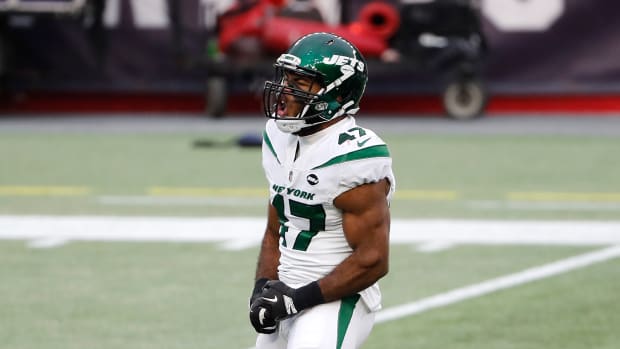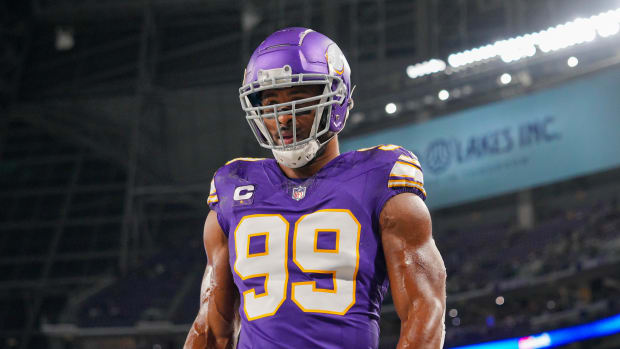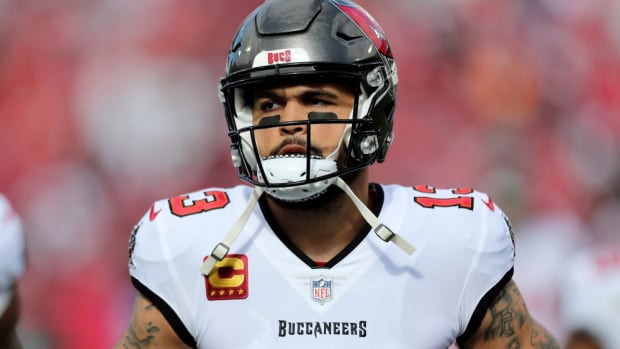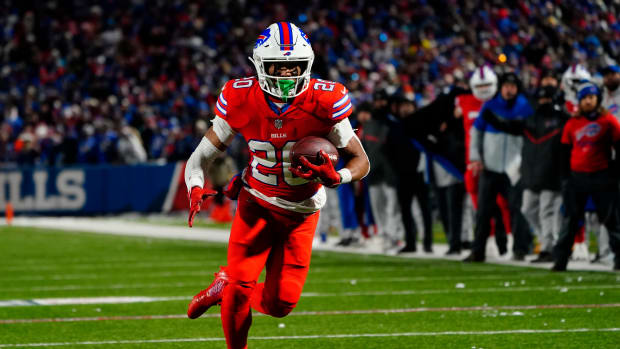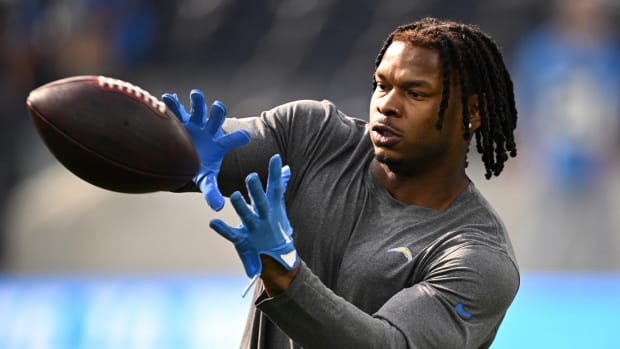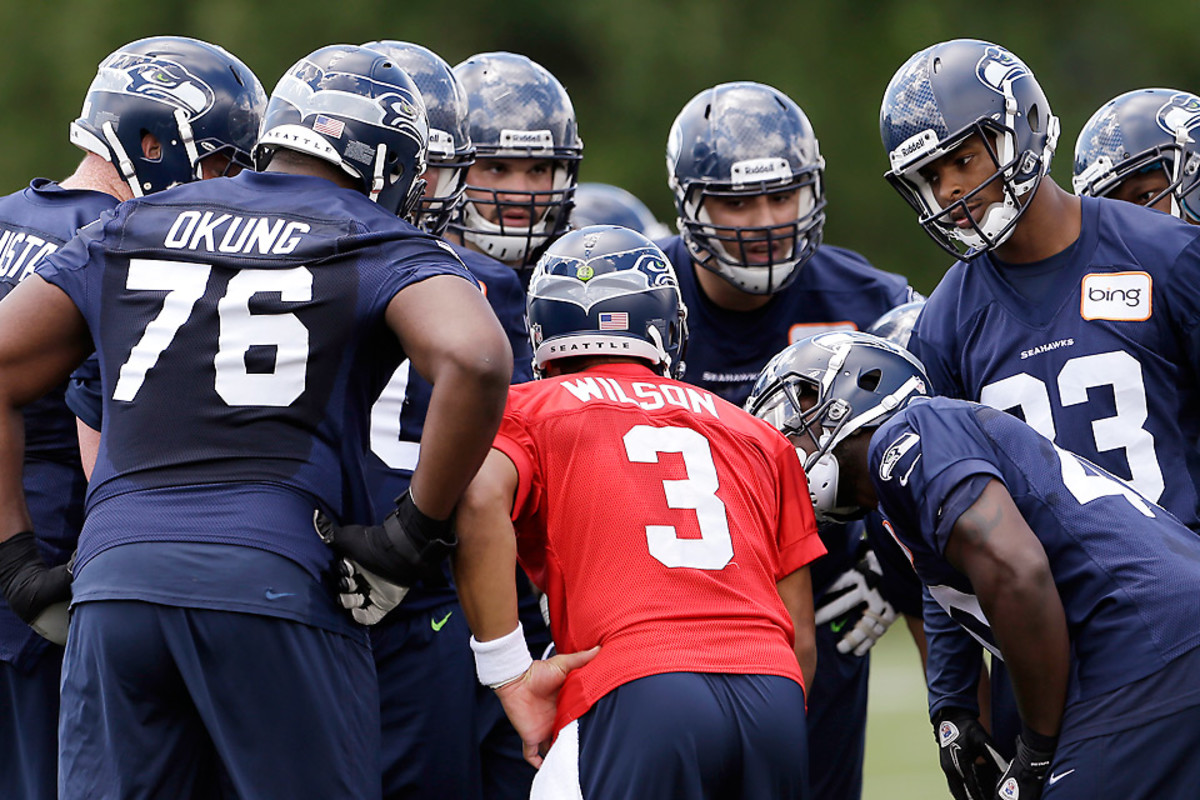
A Team Full of Coaches
RENTON, Wash. — Sidney Rice burst off the line of scrimmage, sprinted roughly 15 yards downfield, then cut left through the center of the Seattle defense during a recent practice. When he got back to the sideline he stopped and asked teammate Jermaine Kearse to critique the route.
"It looked all right. It looked pretty good," the second-year wideout answered.
Rice then turned to third-year pro Doug Baldwin and asked what he thought of the route.
"You rounded it a little bit at the top," he said.
Two different players. Two different responses. One unfiltered reaction.
"Jermaine," Rice barked. "Don’t lie to me again. Tell the truth."
The Seahawks are a popular pick to reach the Super Bowl because they've added several quality pieces to a club that finished 11-5 and came within eight seconds of reaching the NFC Championship Game last season. Much of the focus is on their depth, athleticism and talent, but another key factor is personal accountability. The players demand it of each other in practices and games.
"I tell the guys, 'If you see something wrong with what I'm doing, tell me. Don't hold back because I'm the leader of the group. I want to be criticized, too,' " says Rice. "If you can accept that from the guys that you work with every day, you develop the trust that you need to be successful. We just want to see each other do well."
The commitment to accept nothing but each other's best jumped out during my visiting to training camp last week. Other teams talk it, but the Seahawks practice it. To be more accurate, they demand it. Doesn't matter if you're a rookie or an All-Pro.
Bobby Wagner was a second-round pick who was placed in the middle of a talented defense last year as a rookie. Despite playing well and earning consideration for Defensive Rookie of the Year, he found himself out of position at times. He might've been in the "A" gap (between the center and guard) when he should have been in the "B" gap (between the guard and tackle). But despite his youth and inexperience, teammates cut him no slack. In the heat of battle they told him his play was unacceptable.
When Richard Sherman, arguably the game's best cornerback, was beaten by Rams rookie Chris Givens for a 52-yard catch and run last season, teammates bluntly told Sherman he had to do better, not only because it was paramount for their bump-and-run coverage to work, but also because they expected more from him. Two plays later when QB Sam Bradford tested him again, Sherman was there for the interception. Not that he felt vindicated, though.
"That just brought me back to even," he says. "My thinking was that I had to make another play to get on the plus side. That's just how we hold each other accountable. It's like big brothers and little brothers. You don't ever want to let them down."
The Seahawks sometimes get chided as a team that talks too much, particularly the vociferous Sherman. But their most important words are directed at each other, not opponents. During practice, when it appears the wideouts and cornerbacks are jawing at each other—which does happen—the sides are often providing insight into why one got the better of the other.
The Seahawks get chided as a team that talks too much, but their most important words are directed at each other.
"Today you saw a few guys catch balls, and they weren't like, 'Yeah! Yeah! I got you! Get some!' " says wideout Golden Tate. "The first thing I'm doing is going over to tell [cornerback Brandon] Browner how I caught the ball on him. Just like when Walter Thurmond gets the best of me off the line of scrimmage or in a route; he tells me, 'Your stem was this way, or your shoulders were turned.' That's what we do."
Spend time around the Seahawks and it becomes apparent the players genuinely like and respect each other. The wideouts don't just hang with the wideouts, they're also spending times with the defensive backs and joking with the offensive linemen. Sherman estimates that the cornerbacks spent more time with each other than they did with their own families. "We were together probably eight or nine months the last year," he says.
This bodes well for the coming season, because championship squads are as much about good chemistry as they are about good talent. There are going to be moments that test a club's collective mettle, that force teammates to look each other in the eyes and ask audibly or silently, Can I count on you?
In Seattle, criticism isn't viewed as a means of tearing someone down. It's considered a way of building him up, ensuring he won't make the same mistake twice. That requires egos to be checked at the locker room door, which is where the Seahawks leave theirs.
"We all see each other as family," Tate says. "We have a few rules, and one of them is to protect the team at all costs. Whatever the situation is, on the field, off the field—protect the team. That means demanding the best from each of us. That's important to us because we've all bought in to what coach [Pete] Carroll expects from us. Every day we come with that in mind.
"I know when we take the practice field, I don't play for myself. I play for the guys around me because we all know how good we can be as long as we don't let what people are saying on the outside get to us. We also know there's always room for improvement, which is why we demand so much from each other. It's never personal. It's all about getting better."
[si_video id="video_C653248D-B607-25F4-B980-2856C806F3DE"]
The MMQB crew has hit the road for training camps. Check out all our coverage.
































